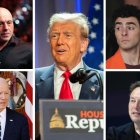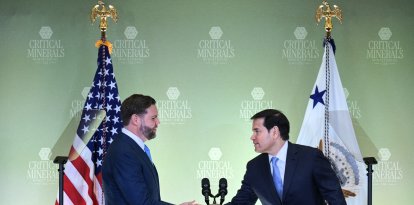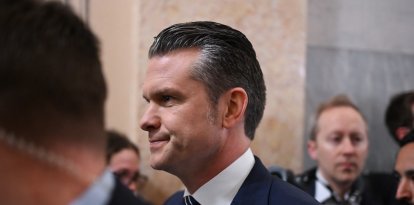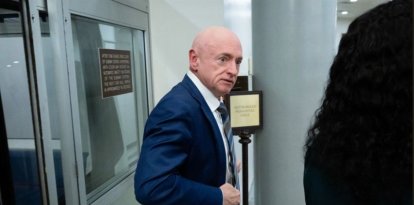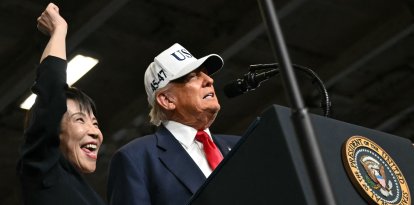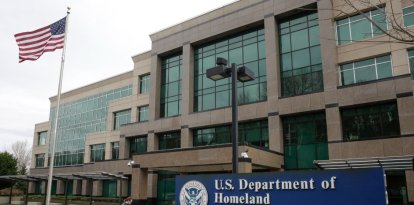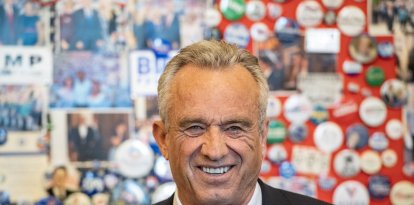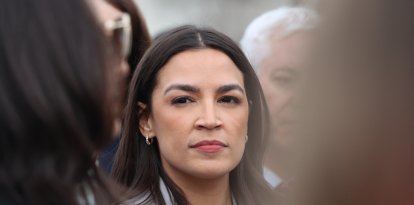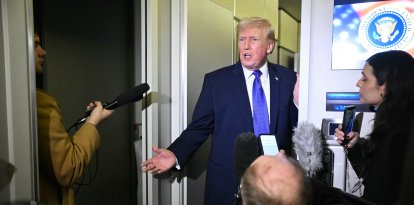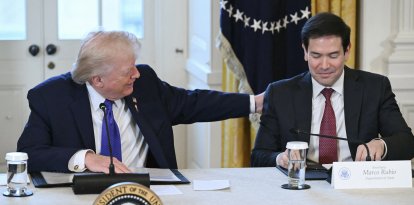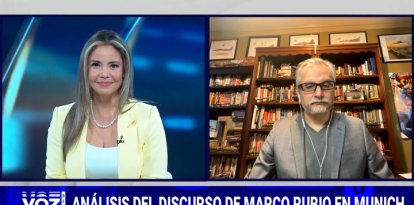Earthquake in Germany over Musk's support for AfD
The billionaire and future member of the Trump administration publicly endorsed Alternative for Germany for the elections. Local politicians, including the leader in the polls for chancellor Friedrich Merz, accused him of election interference.

Elon Musk and German Chancellor Olaf Scholz.
Two months before the German election, Elon Musk emerged as an unanticipated player in the election cycle. The richest man in the world, a close ally of Donald Trump, became the center of the debate after supporting a party branded as far-right by politicians and mass media, an idea Musk rejects.
The formation, called Alternative for Germany (AfD), is a right-wing party regarded with suspicion by the major parties. A Politico poll shows it has 19% support for the upcoming elections on February 23, ranking him second with the most support. Last September he achieved an electoral milestone, winning his first regional elections.
Musk's support first came in the form of a social media post, which said "Only the AfD can save Germany." He was soon showered with criticism, even from the United States. Far from being intimidated, Musk published an opinion article in a German newspaper, and unleashed an earthquake that resulted in resignations, reproaches and the intervention of the main political parties.
Musk’s comments
"Their future teeters on the brink of economic and cultural collapse," said the future leader of the DOGE about Germany in an article published by the Welt am Sonntag newspaper. In the face of this gloomy prognosis, he sees a ray of light in the AfD: "It is the last spark of hope for this country."
From the "economic revitalization" of a country that "is now drowning in bureaucracy and stifling regulations" to the danger of immigration that "has led to major cultural and social tensions," Musk defended the party's agenda point by point.
"To those who condemn the AfD as extremist, I say: don't be put off by the label it carries," he invited, calling to read its election program. "Germany has become too comfortable in mediocrity: it is time for a bold change, and the AfD is the only party that can pave that way."
Allegations of interference, grievances and a resignation
The controversy broke out, first, within the same media outlet that published Musk's article. Opinion Editor Eva Marie Kogel announced her resignation in X after mentioning Musk’s piece, without giving further details:
"Today an article by Elon Musk appeared in 'Welt am Sonntag.’ Yesterday I tendered my resignation after the spread."
The newspaper was quick to refute its own guest, in an article by its acting editor-in-chief, Jan Philipp Burgard, bluntly titled “Why Elon Musk supports the AfD and why he is wrong.” It is worth noting that despite criticizing the arguments that place the AfD as a necessary solution, Burgard acknowledges that "Musk's diagnosis is correct."
The newspaper was also joined by the German Journalists' Association (DJV), which in a statement reported by Der Spiegel accused the Welt of "getting everything wrong." It warned other German media to avoid being used "unduly as mouthpieces for autocrats and their friends."
Both the current government and its likely successor according to polls accused Musk of interference. Friedrich Merz, from the opposition Christian Democratic Union (CDU) and first in the polls to be the next chancellor, said in a statement reported by Reuters that he could not recall "a comparable case of interference, in the history of Western democracies, in the election campaign of a friendly country."
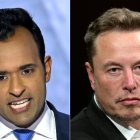
Opinion
What to do about migration? The debate Vivek Ramaswamy and Elon Musk are putting on the table
Vanessa Vallejo
According to the same agency, the leader of the ruling Social Democratic Party of Germany (SPD) Saskia Esken promised to resist foreign interference, and said "In Elon Musk's world, democracy and worker's rights arte obstacles to more profit.”
Government spokeswoman Christiane Hoffmann argued that while it had "certainly" been an attempt at election interference, "freedom of speech also includes the biggest nonsense."
Anticipating criticism from those who might question his position on German politics from the United States, Musk reminded readers in his article of his "significant investments in the German industrial and technological landscape," which gave him, he says, "the right to speak openly about its political direction."
Among those defending the South African entrepreneur was Thorsten Frei of the CDU, who stated, “I don’t see any illegal influence on the election campaign, especially since the traffic light coalition made similarly partisan statements about the U.S. election campaign in the summer.” The newspaper that published his remarks, Rheinische Post, also noted that Federal Labor Minister Hubertus Heil (SPD) had endorsed Kamala Harris.





